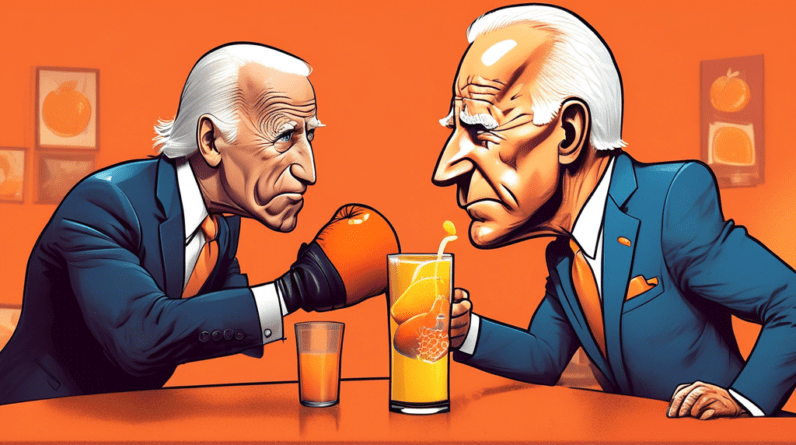
Representative [Lawmaker’s Name] Introduces Controversial Legislation Mandating Cognitive Tests for Presidential Candidates
In a move that has sparked heated debate across the political spectrum, Representative [Lawmaker’s Name] (R-[State]) has introduced the No Juicing Joe bill, a piece of legislation that would require presidential candidates to undergo rigorous cognitive function testing. The bill, officially titled the Presidential Fitness and Transparency Act, is widely seen as a direct response to concerns over President Biden’s age and fitness for office, with its nickname directly referencing the President.
The Bill’s Provisions and Intended Goals
The No Juicing Joe bill, as it’s come to be known, proposes a series of amendments to the existing presidential election process. Primarily, it mandates that all candidates vying for the Oval Office submit to a battery of cognitive tests administered by an independent panel of medical professionals. These tests, as outlined in the bill, would assess various cognitive functions, including:
- Memory recall and retention
- Attention span and focus
- Language comprehension and articulation
- Problem-solving and decision-making abilities
- Executive function and impulse control
Proponents of the bill, largely aligning with the Republican party, argue that such measures are essential to ensure that the individual occupying the highest office in the land possesses the mental acuity and cognitive capacity required to effectively lead the nation. They contend that the demands of the presidency, with its complex geopolitical challenges and high-stakes decision-making, necessitate a leader with sharp cognitive function.
Criticism and Accusations of Ageism
The No Juicing Joe bill has faced swift and pointed criticism from Democrats and various advocacy groups, who denounce it as a thinly veiled attack on President Biden’s age. Critics argue that the bill’s very name, with its mocking reference to the President, betrays its underlying intent: to cast doubt on Biden’s mental fitness and sow seeds of uncertainty among the electorate. They further argue that the bill unfairly targets older candidates and perpetuates harmful stereotypes about age and cognitive decline.
Opponents of the bill also raise concerns about the potential for misuse and manipulation. They point out that the interpretation of cognitive test results can be subjective and that such tests, while potentially useful in clinical settings, are not designed to predict job performance, especially for a role as multifaceted and demanding as the presidency. They fear that the bill, if passed, could be weaponized for political gain, used to discredit candidates based on subjective interpretations of their cognitive abilities.
Constitutional Concerns and the Potential for Legal Challenges
Beyond the political firestorm, legal experts have also raised concerns about the No Juicing Joe bill’s constitutionality. They point to Article II of the Constitution, which outlines the eligibility criteria for the presidency: a natural-born citizen, at least 35 years old, and a resident within the United States for at least 14 years. Notably, there is no mention of cognitive function or any other health-related qualifications.
Critics argue that the bill, by imposing additional requirements beyond those stipulated in the Constitution, sets a dangerous precedent. They fear that if successful, it could pave the way for further encroachments on the qualifications for public office, potentially leading to the inclusion of subjective or discriminatory criteria.
The Bill’s Fate and Broader Implications
As it stands, the No Juicing Joe bill faces an uphill battle in Congress. With Democrats holding a slim majority in the House and Republicans lacking a filibuster-proof majority in the Senate, the bill’s passage in its current form seems unlikely. However, the bill’s introduction, regardless of its legislative fate, has ignited a national conversation about age, fitness for office, and the criteria by which we judge our leaders.
The debate surrounding the No Juicing Joe bill underscores the heightened scrutiny placed upon the physical and mental health of those vying for the presidency, particularly in an era where misinformation and disinformation can spread rapidly. It also highlights the deep partisan divide in American politics, where even discussions about seemingly apolitical topics like health and aging can become intensely polarized.
Whether the No Juicing Joe bill becomes law or fades into obscurity, its legacy will likely lie in its contribution to the ongoing national dialogue about the qualifications, expectations, and pressures faced by those who aspire to the highest office in the land.






